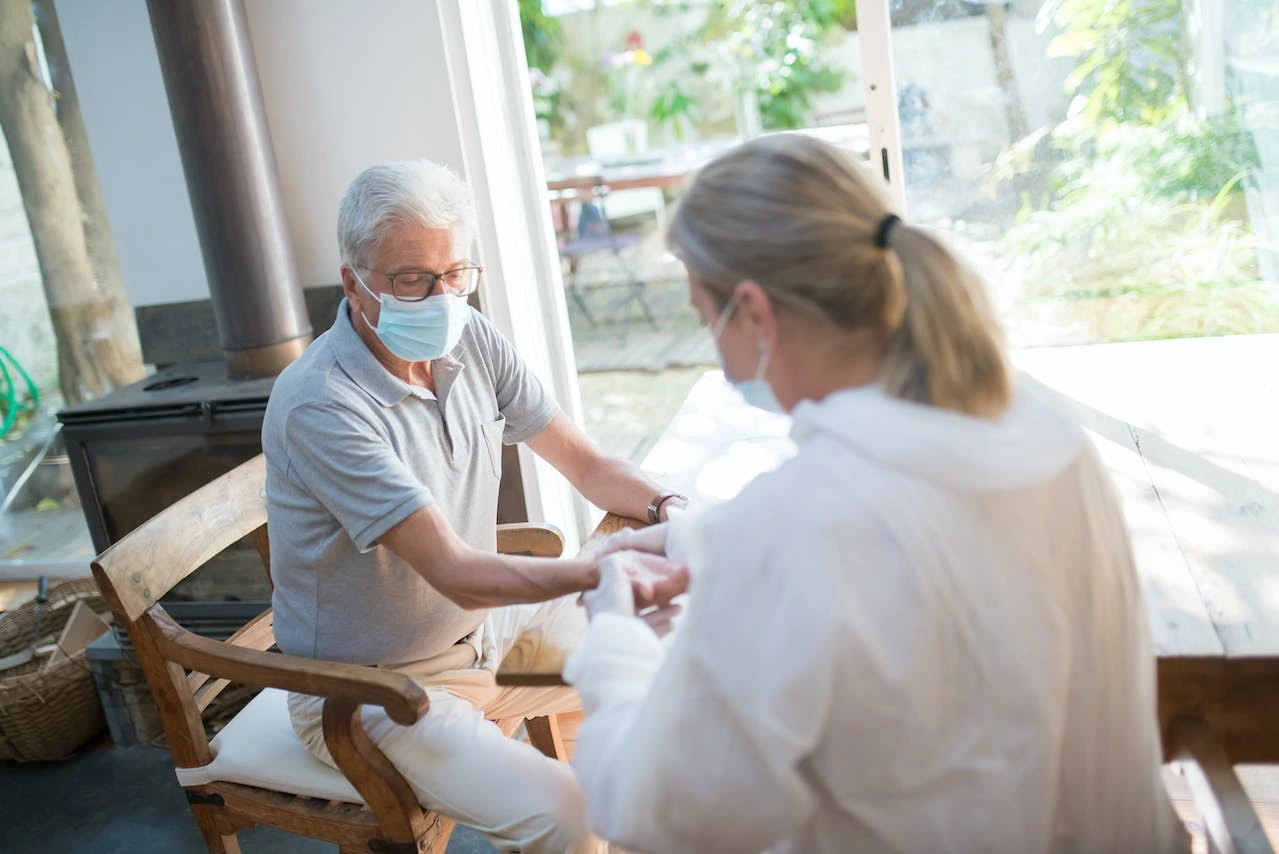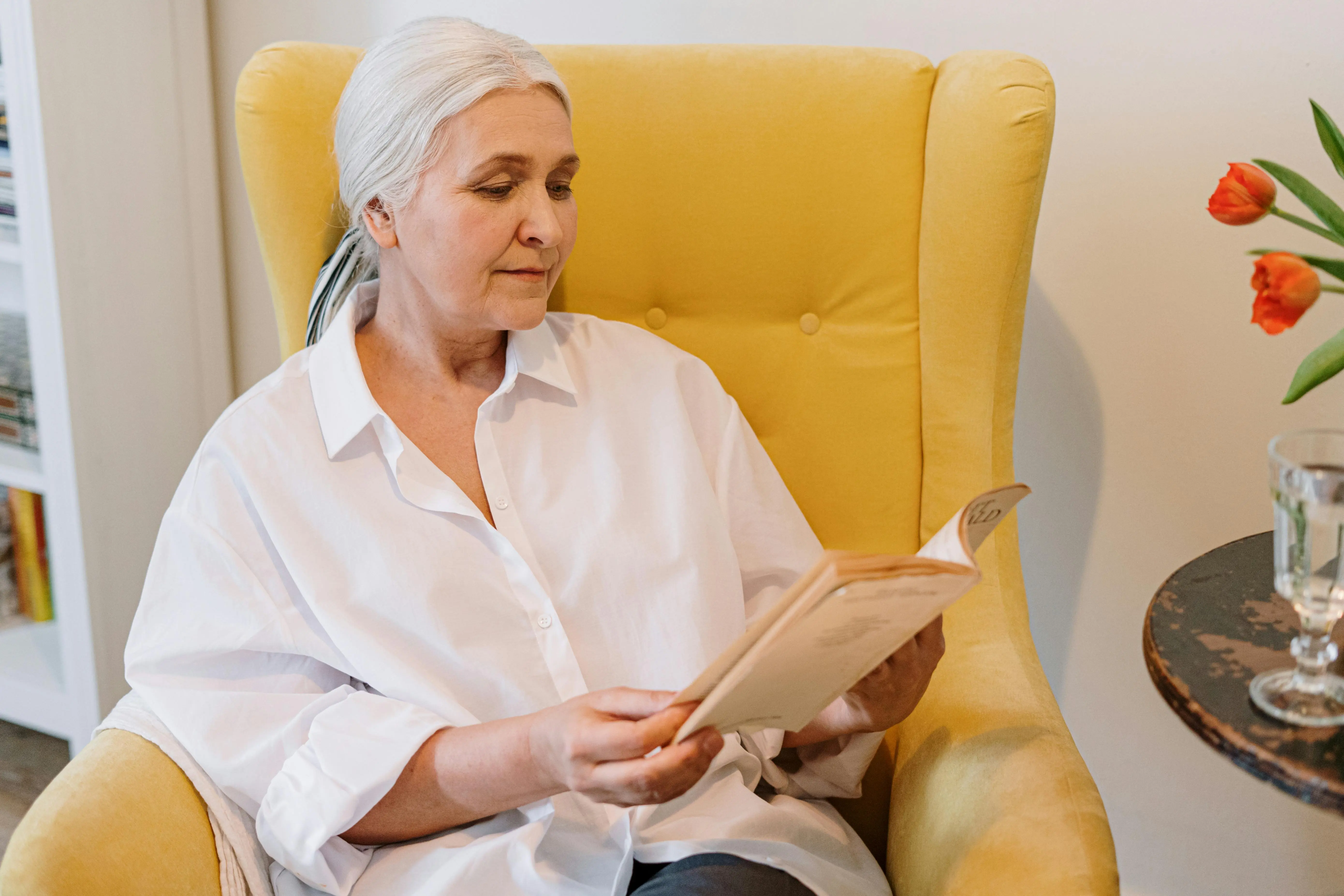As our loved ones age, their comfort, health, and dignity become vital priorities. In-home elderly care offers compassionate, personalized solutions.

Blog
In-Home Elderly Care - The Complete Guide
As our loved ones age, ensuring their health, happiness, and safety becomes a top priority. Among the many care options available today, in-home elderly care is becoming a preferred choice for families seeking a balance of compassion, independence, and familiarity. Unlike nursing homes, this approach allows seniors to remain in a familiar environment—enhancing emotional well-being and reducing the risks of anxiety, depression, or relocation shock. In this guide, we’ll explore in-home elderly care in detail—from services and costs to caregiver selection and safety—providing everything you need to support your aging family members effectively.
In-home care brings several advantages that improve both quality of life and care outcomes for seniors. Let’s examine the key reasons why this model is gaining traction across India and globally:
Home environments help seniors feel secure and emotionally stable, especially for those managing conditions like dementia or Alzheimer’s.
Care plans are tailored to each senior’s medical needs, mobility, and routines, promoting dignity and individual well-being.
Staying at home empowers seniors to follow familiar routines, hobbies, and social interactions—vital for mental health.
In-home care enables families to remain actively involved in decision-making, caregiving, and companionship.
According to a 2022 report, in-home care can be up to 25–30% more affordable than full-time residential facilities.
In-home elderly care services are designed to address physical, medical, and emotional needs. Here are the most commonly provided services:
Trained caregivers offer emotional support, conversation, and cognitive engagement to reduce isolation.
This includes help with bathing, dressing, grooming, eating, and mobility.
Caregivers plan and cook meals suited to dietary restrictions and medical needs.
Seniors are supported in taking prescribed medicines on schedule, reducing risks of missed doses.
Assistance with attending doctor appointments, religious services, or grocery shopping.
Basic housekeeping and ensuring a fall-proof, hygienic home environment. Read more on safety rules at home.
Licensed nurses can provide wound care, injections, and manage chronic conditions such as diabetes, Parkinson’s, or heart disease.
For seniors with dementia or terminal illness, specialized caregivers ensure quality of life and dignity in care.
Costs vary depending on the city, level of care, hours required, and whether the caregiver is hired independently or via an agency. On average, Indian urban centers report rates of ₹300–₹700/hour for basic care and ₹1,000–₹2,000/day for full-time caregivers. Factors influencing cost include:
Post-surgical care or dementia support may involve higher fees than basic companionship.
24x7 care or live-in arrangements are more expensive than part-time support.
Metro cities generally command higher costs due to living expenses.
Agencies offer trained and verified staff with backup but at a premium.
Here’s a step-by-step guide to initiating caregiving for your senior family member:
Evaluate your loved one’s medical history, cognitive abilities, and assistance required for daily tasks.
Look for in-home care providers with licensed staff, positive reviews, and clear service offerings.
Shortlist caregivers or agencies and interview them to ensure empathy, experience, and communication skills.
Draft a routine, dietary preferences, medications, and contingency plans.
Review insurance coverage, family contributions, and government schemes such as Ayushman Bharat.
Distribute caregiving responsibilities and maintain open communication between siblings and relatives.
Mrs. Sharma, 78, was diagnosed with early-stage Alzheimer’s and struggled with forgetfulness and isolation. Instead of opting for a facility, her family hired a caregiver through a reputed home healthcare agency in Pune. Over six months, her quality of life improved with routine activities, memory-stimulating games, and home-cooked meals. With the help of eldercare guidance in India, her family customized care protocols and successfully avoided hospitalization.
Look for formal caregiving training, CPR certification, experience with elderly patients, and empathy.
Yes, with the right caregiver trained in cognitive support, it allows patients to live safely and meaningfully at home.
Certain health insurance policies and government programs may cover in-home nursing or rehabilitation care.
Ensure non-slip flooring, remove clutter, install grab bars, and maintain medication logs.
In-home elderly care empowers seniors to live with dignity, independence, and comfort while receiving personalized attention. It also allows families to remain close and actively engaged in their loved one’s care. By understanding the types of services, costs, and safety considerations involved, families can confidently make compassionate choices for aging at home.
HealthOK Global provides expert insights and preventive wellness guidance. For personalized tips or free consultations, reach out to our 24 x 7 Helpline via WhatsApp.
In-home care brings several advantages that improve both quality of life and care outcomes for seniors. Let’s examine the key reasons why this model is gaining traction across India and globally:
In-home elderly care services are designed to address physical, medical, and emotional needs. Here are the most commonly provided services:
Costs vary depending on the city, level of care, hours required, and whether the caregiver is hired independently or via an agency. On average, Indian urban centers report rates of ₹300–₹700/hour for basic care and ₹1,000–₹2,000/day for full-time caregivers. Factors influencing cost include:
Here’s a step-by-step guide to initiating caregiving for your senior family member:
Look for formal caregiving training, CPR certification, experience with elderly patients, and empathy.
Yes, with the right caregiver trained in cognitive support, it allows patients to live safely and meaningfully at home.
Certain health insurance policies and government programs may cover in-home nursing or rehabilitation care.
Ensure non-slip flooring, remove clutter, install grab bars, and maintain medication logs.
Need Personalized Health Guidance?
Get expert advice tailored to your specific health needs from our qualified healthcare professionals.





